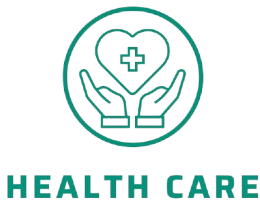Sleep Your Way to Fitness: How Rest Impacts Your Gains
Meta Description: Discover how quality sleep boosts muscle growth, fat loss, and performance. Learn science-backed tips to optimize rest for maximum fitness results.
Introduction
Ever hit the gym hard but still struggle to see results? You might be missing a crucial piece of the fitness puzzle—sleep. While diet and exercise get all the attention, sleep is the secret weapon for muscle recovery, fat loss, and peak performance. Let’s dive into why sleep is your ultimate fitness ally.
Section 1: The Science of Sleep and Fitness
Sleep isn’t just downtime—it’s when your body repairs muscles, balances hormones, and refuels energy. Studies show that poor sleep can:
- Reduce muscle growth by lowering testosterone and growth hormone levels.
- Increase fat storage due to elevated cortisol (stress hormone).
- Impair performance by slowing reaction time and endurance.
Subsection 1.1: How Sleep Boosts Muscle Growth
During deep sleep (REM and slow-wave stages), your body:
✔ Repairs muscle fibers damaged during workouts.
✔ Releases growth hormone, critical for muscle recovery.
✔ Restores glycogen for energy.
Example: A study in the Journal of the American Medical Association found that athletes who slept 8+ hours gained 60% more muscle than those sleeping 6 hours or less.
Section 2: Sleep vs. Fat Loss
Want to burn fat faster? Prioritize sleep. Lack of sleep:
- Increases hunger hormones (ghrelin) and decreases fullness hormones (leptin), leading to cravings.
- Slows metabolism by up to 20%, making weight loss harder.
Tip: Aim for 7–9 hours of sleep to keep metabolism and appetite in check.
Section 3: Optimizing Sleep for Fitness
Subsection 3.1: Sleep Hygiene Tips
- Stick to a schedule (even on weekends).
- Avoid screens 1 hour before bed (blue light disrupts melatonin).
- Keep your room cool (60–67°F) for deeper sleep.
- Limit caffeine after 2 PM—it can linger for 6+ hours.
Subsection 3.2: Pre-Bed Nutrition
- Eat protein before bed (casein or Greek yogurt) to support overnight recovery.
- Avoid heavy meals 2–3 hours before sleep.
FAQs
Q1: Can napping help with muscle recovery?
A1: Yes! A 20–30 minute power nap can boost alertness and reduce cortisol, aiding recovery.
Q2: Does sleep quality matter more than quantity?
A2: Both matter—deep, uninterrupted sleep (7–9 hours) is ideal for fitness gains.
Conclusion
Sleep isn’t laziness—it’s legit training. If you’re lifting, running, or dieting but skipping rest, you’re leaving gains on the table. Prioritize sleep like you do your workouts, and watch your fitness transform.
Ready to level up? Track your sleep with a wearable or app, and share your progress below! 💤💪
